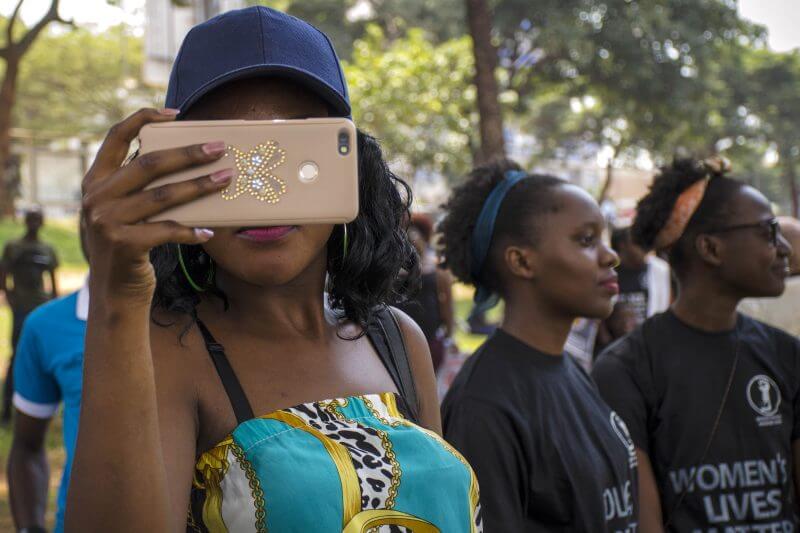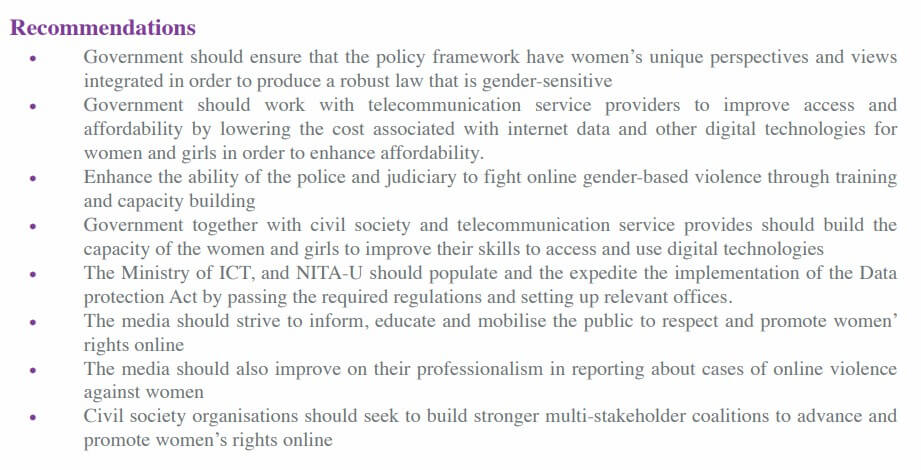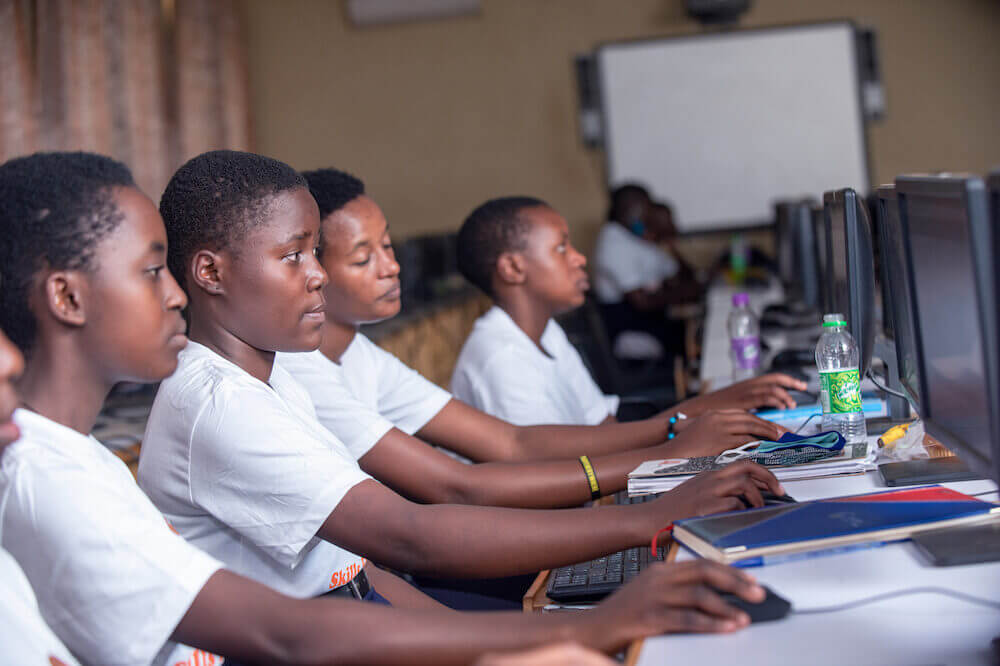Uganda’s Gender Digital Gap: Women aren’t using internet and, when they do, it’s for wrong reasons!
Can gender digital gap be solved? Across the world, ICT and digital solutions are greatly changing business operations. Integrating ICT technologies improves productivity, reduces corruption, encourages collaboration and participation, efficiency and optimization, and, most importantly, reduces costs (Marius, 2012; Kuffour, 2017). This is so whether you are in developed countries or the developing ones like Uganda.

Sadly, irrespective of the very many advantages associated with integrating ICT into daily business, most small businesses, especially in developing world haven’t embraced ICT solutions yet (Oroma, Kiden, Maghendha, & Ntiyani, 2013). This poor integration of ICT into business is even worse when it comes to women and a section of underprivileged youth (Steele, 2019; Alozie & Akpan, 2016).
In Uganda, a recent study by World Wide Web Foundation reveals a gender digital gap of 43%, which is slightly lower than general gender digital gap for Africa (50%). According to the study, of the 39.3% Ugandans who have access to internet, women form a smaller portion and, in terms of quality connectivity, have poorer connectivity. To be exact, men are 43% more likely to be online than women (World Wide Web Foundation, 2020).
Even more unfortunate is that, if they ever access internet, women use the opportunity for wrong reasons! Wait! What! You would think they (women) are the ones to blame here, right? Well, not necessarily! In general, internet is uniquely a threat to women. And so women don’t find confidence and trust in internet like men do! According to World Wide Web Foundation (2020), women are likely to remain reserved regarding posting about political, social, and economic issues compared to men. Actually, notes the study, men are ‘29% more likely to sell or advertise a product or service online’ compared to women.
In 2015, Uganda Communications Commission-UCC had noted that only 44% of women use phone at one time compared to 62% of the men. According to World Wide Web Foundation (2016), of the 10 cities examined, Kampala had the largest gender digital gap, with 21% of women accessing internet compared to men’s 61%. The point is, in general, ICT and internet access is still poor in Uganda and Africa. And women are majorly the victims here.
Factors contributing to gender digital gap
Well, so many factors are responsible for gender digital gap. The 2016 survey blamed the gap on affordability. According to the study’s argument, internet access is expensive, and this becomes harder to overcome, especially for women who have no significant source of income. This is the same argument by Freedom House. But Freedom House has more!
According to Freedom House (2018), Uganda’s government takes a lead among the major causes of gender digital gap havoc! From social media taxes to threats and content manipulations to arrests, torture and detention of online activities to online spying using malwares, Freedom House argues that Uganda’s government isn’t helping. Concerning policies, no Ugandan policy specifically provides for gender digital gap. Get it directly from the report: ‘Although Uganda has several laws and policies that provide for gender equality, none of them is specific about the digital gender divide, including the ICT Policy and Vision 2040′ (Association for Progressive Communications-APC & Women of Uganda Network-WOUGNET, 2020, p.10)
Concerning UCC, Uganda’s ICT regulation body, Freedom House (2018) notes that the body isn’t independent of government, and is often used as a tool to crackdown on internet rather than develop and promote its access. There you go! In other words, if you see women not accessing internet or, when they do, not positing what they think regarding politics, business, and social life, Uganda government has a hand in the affair!
The 2020 study by World Wide Web Foundation blames this gap on poor ICT skills among women, trust issues with privacy policies, and shortage of relevant content for women online! Concerning skills, it is important to note there is still gender gap in education. Well, for shortage of relevant content, it is because women don’t or are scared of creating the content (World Wide Web Foundation, 2020). And for privacy issues, it is because most women have faced online harassments and or violence (International Center for Research on Women, 2018).
According to the 2020 report by Association for Progressive Communications-APC & Women of Uganda Network-WOUGNET, most women have experienced online harassments. For example, notes the report, the number of women whose nude photos have been shared online without their consent has risen, with more than 8 celebrities having suffered the ordeal in the last few years! Such behaviors push many women away!
Bridging the gender digital gap
Various remedies can help with gender digital gap. For example, availing digital skills and ICT training for women and girls, educating a girl child, putting up favorable ICT policies that cater for women and address online harassments, reduce internet costs, provide reliable connectivity, improve financial muscles for women so they can afford internet, and, of course, partnerships for this cause. For recommendations, see the attached screenshot below!

What Miklah is doing about gender digital gap
Miklah, your tech-driven social enterprise isn’t seated.
- First, our company is built on the cores of gender equity, implying that women have greater access to our services. Read about us.
- Secondly, in our program called Sacred Entrepreneurship, we are training young entrepreneurs, especially women on starting and growing sustainable businesses, a step closer to financial empowerment for women.
- And, most importantly, we train and provide for online presence for every entrepreneur or woman we work with, directly enabling women to acquire and apply ICT in their businesses. See our online directory here.
- Our initiative, Yapheh Salons, an online booking platform for salon services is pro-women in all operations and all senses.
- Our initiative, Lhealth App is providing secure, safe, and reliable comprehensive sexuality education, further reducing violence, and empowering women for action.
- We have specific programs that call for women into ICT, for example, the recent call for WordPress training 2021. And more.



